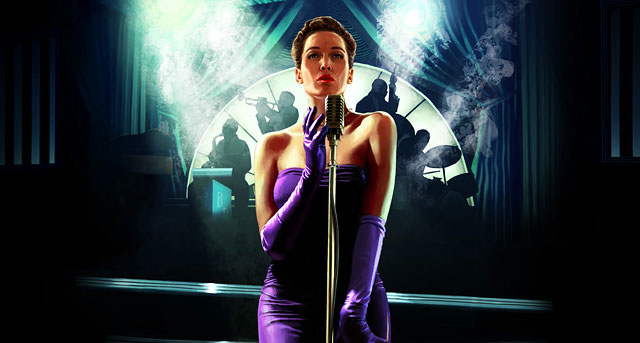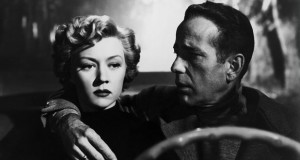Platform: Xbox 360
Developer: Team Bondi
Publisher: Rockstar Games
L.A Noire drew a lot of attention prior to its release due its use of a remarkable motion capture technology that does an incredibly convincing job of recreating the facial tics of real life actors and transposing them onto the character models in-game. The people in L.A Noire blink, wince, sneer, shout and smile in a truly lifelike fashion that stands head and shoulders above the rest of what the gaming industry currently has to offer. It’s my hope that this piece of technology becomes widely available and used by other game developers. After spending the past fortnight playing this game, it is difficult to switch to other character based games that have such wooden animation by comparison.
The scale of the game is enourmous both in terms of geography and scope of storyline. L.A Noire‘s post-war Los Angeles is a massive landscape that really checks all the boxes you could ask for when window-dressing a noir detective game. Famous landmarks such as Chinatown, Union Station and the RKO Theatre are all modelled and accessible in this game. There are sleazy red light districts, suburban sprawls, rundown neighbourhoods, upmarket gated communities and so on. If there’s a location you can name in your favourite noir film, chances are, it’s in this game.
The sheer volume of cases and storylines are worth noting too. Twenty one cases, each taking around 45 minutes to complete, is a lot of content. There is a massive variety in cases with some based on famous real life mysteries such as The Black Dahlia murders. I read an interview in Edge Magazine where the developers equated the content to roughly ‘two seasons of tv show.’ They’re not kidding. There’s enough ideas and stories packed in here to fill the narratives of several games.
So how does it play? As with most of its other features, L.A Noire really throws the kitchen sink at you in terms of what you can do as Detective Phelps. Over the course of the game you’ll be interrogating suspects, searching for clues, checking in with the boys down at the crime lab, chasing perps, busting drug runners and uncovering corrupt cops. This game has it all and most of these action sequences are well handled and fun to play.
There is a decent amount of customization available in L.A Noire too that can significantly change the gaming experience depending on what you want as a player. You can add or remove audio cues to help you find clues and there is also a rather nifty option to turn the visuals monochrome to give it the feel of a Forties film. These choices are a good thing and help personalize the game to the tastes of the individual.
I guarantee most players will be enthralled after playing L.A Noire for an hour. Thanks to its casting of well known actors (mostly from Mad Men) and its slick presentation of an under-represented genre in gaming, everything feels fresh, exciting and full of promise.
For most players, this goodwill starts to wear away after the fifth case or so. Let me explain.
After notching up a few successful cases and getting promoted to the Homicide Division, a pattern begins to emerge. Each case never has more than two suspects. The interrogation, surely the heart and soul of a game such as this, never expands into anything more sophisticated than asking four questions and is completely lacking in depth. During the interogations, each statement a suspect makes is followed by the option for the player to either believe, doubt or call them on a lie. It doesn’t matter if the player gets this response right or wrong. The game continues irregardless with the same outcome. This feels hugely disempowering. You could play Phelps as the world’s sharpest detective or as a Forties version of Frank Drebin and it doesn’t make a shred of difference. Where is the incentive to put in any effort?
Phelps also seems to undergo enourmous changes to his personality depending on which option you choose. When you believe what the suspect says, Phelps is kindly, supportive and mild mannered which pretty much fits his demeanour during the rest of the game. However, choose to doubt a suspect’s statement and occasionally he will go uncharacteristically bezerk, berating old ladies and making degrading sexual remarks about recently widowed housewives. His insane bi-polar behaviour where he intermittently acts kindly then angrily reminded me of that old Monty Python sketch at the butcher shop.
Perhaps the most infuriating design choice made by Team Bondi is the decision to forcibly tell the player when they choose an incorrect option during the interrogation process. It is a game mechanic that completely shatters the sense of immersion and re-enforces that you aren’t really having an organic conversation with someone but instead are simply choosing a response from a multiple choice test with binary ‘right’ or ‘wrong’ options. You are given negative re-enforcement in the form of a big ‘x’ in your notepad for choosing an incorrect answer but then you have no option to restart the interogation if you want to correct the error. These sequences in the game badly need an option to remove the feedback.
Fundamentally this reflects an approach to the game mechanics which I think puts the developers at odds with almost everyone who will play this game. I believe players want to be Cole Phelps when they play the game. If a suspect lied to you, the game shouldn’t tell you they got away with it. If you are Phelps, how would you know unless there was an omnipotent game developer scoring your choices and telling you that you got it wrong. Similarly, some cases open with a cutscene that actually reveal the killer or what happened before a crime took place. It’s annoying because when you assume control of Phelps, as the player you know more than Phelps the character. I believe the player wants to be Phelps and immerse themselves in a story that they experience through his eyes but the developers seem determined to put up a wall seperating the player and the avatar. Nowhere is this more apparent than during the game’s bizarre revelation in the final arc that reveals Phelps to be having an affair. It leaves you feeling like you know nothing about the character you’ve just spent twenty hours controlling. This is not a good thing.
The pacing of the game is interesting to consider. Twenty one repetitive cases makes this one tedious game to sit through if you try and complete the game in, lets say, a two week timespan. However, I think if someone were to only play a single case once a week, as if they were following a television series, maybe it wouldn’t feel as laboured and the repetition wouldn’t be as noticable. The developers should put up that suggestion at the start of the game perhaps?
And as with the Grand Theft Auto IV and Red Dead Redemption, I can’t help but think L.A Noire would be a better game if it stripped away almost two thirds of its chapters/cases/missions and actually expanded the remaining stories to have greater depth. Twenty one cases that always have two suspects and the same basic clue-finding->action sequence->interrogation structure is formulaic to the extreme and is comparable to sitting through an entire season of Law & Order. Wouldn’t it be better to take a single case and have a greater range of suspects, multiple plot twists and more sophisticated interrogation sequences? I feel like Team Bondi should have aspired to make each case feel like a season of The Killing. Fewer cases with greater depth would have been a far better choice. As it stands, this game has storylines borrowed from over a dozen famous books, films and real life events but has absolutely no detail and little sense of accomplishment when completing a case.
This review is quickly turning into a generalized assessment of all of Rockstar’s major releases in the last four years but I really feel the same point is applicable to all the aforementioned games. I love the ambition and idea behind these games but the execution and adherence to an outdated gaming structure is letting them down.
I think the affair is a really interesting direction to take Cole Phelps’ character. Most games typically aren’t interested in attempting that sort of moral ambiguity with their protagonist. But what’s the point in taking the story down that path if you’re not putting any context around it? If you’re going to hire these amazing actors from Mad Men and have a brilliant animation system that captures their performances convincingly why not be ballsy with the design brief and fill the game with lengthy cutscenes that shows the breakdown of Cole’s marriage or how his relationship flourishes with the German blues singer? Hideo Kojima already did a 60 minute cut scene in Metal Gear Solid 4 in 2008 so is it such a crazy idea in 2011 to have a 10 minute cutscene that actually fleshes out the characters a bit more instead of making the player sit through yet another homicide case that’s identical to the previous three? Rockstar seemingly aspire to create ever-more cinematic and sophisticated games but they are still wrapped around an unwieldy 30 part mission structures from what they were making ten years ago and it just doesn’t work.
At the end of the day, L.A Noire hits a few highpoints with its facial animation technology and its excellent recreation of a fascinating era in American history but falls disappointingly short of the mark overall due to some poor and downright baffling design choices that don’t play to the strengths of the game at all.
Review Overview
RATING
AVERAGE
Summary : It starts off inspired, goes for too long, repeats itself and runs out of puff. So much promise but it doesn't deliver.
 The FAT Website est. 1999
The FAT Website est. 1999





Really enjoyed this review buddy, and I wholeheartedly agree with you. Top stuff.
Thanks pal! 🙂
Too bad the game wasn’t a better experience. Maybe one day Rockstar can make an open world 30 case Poirot game that spans 30 books.